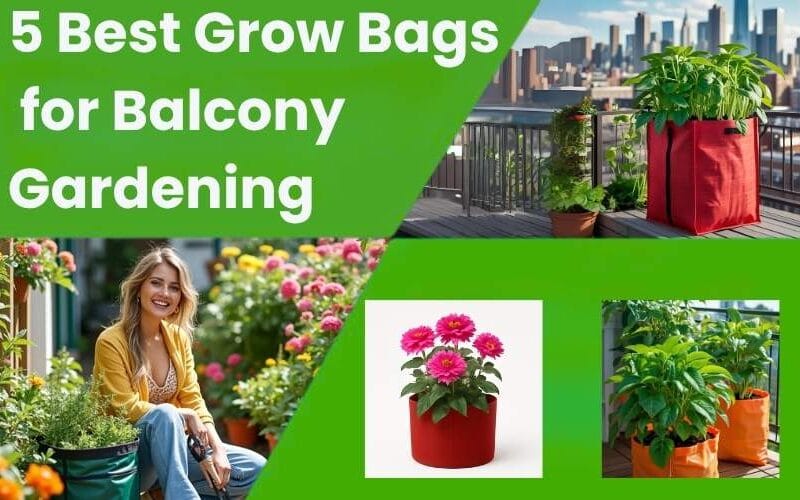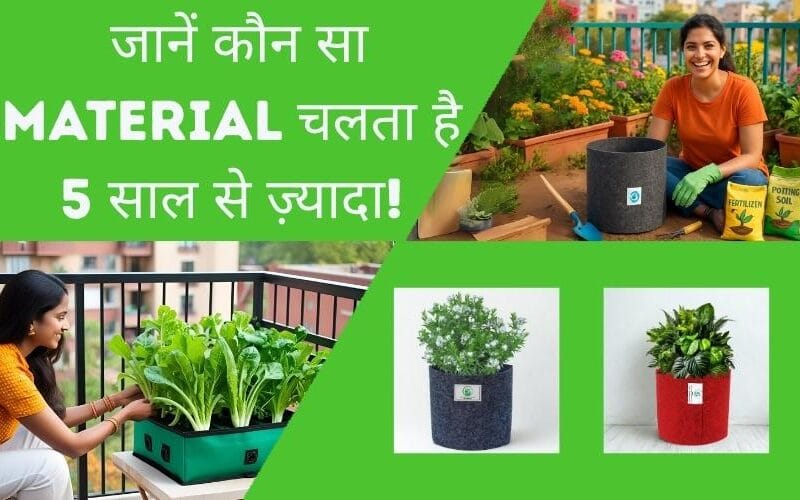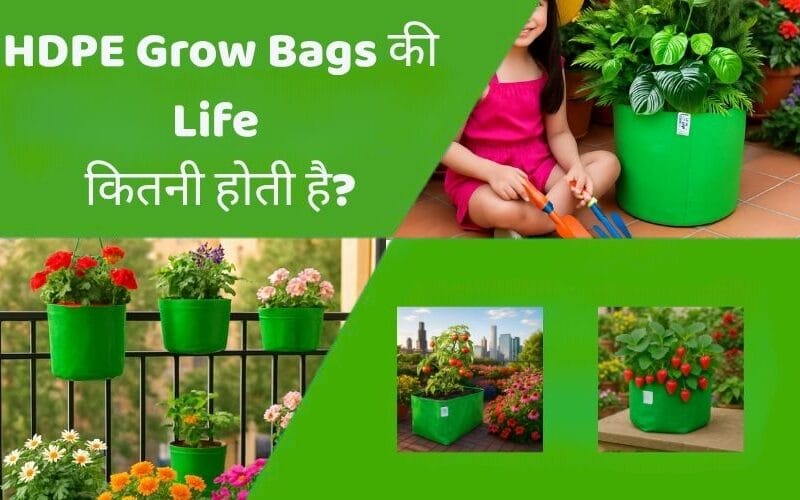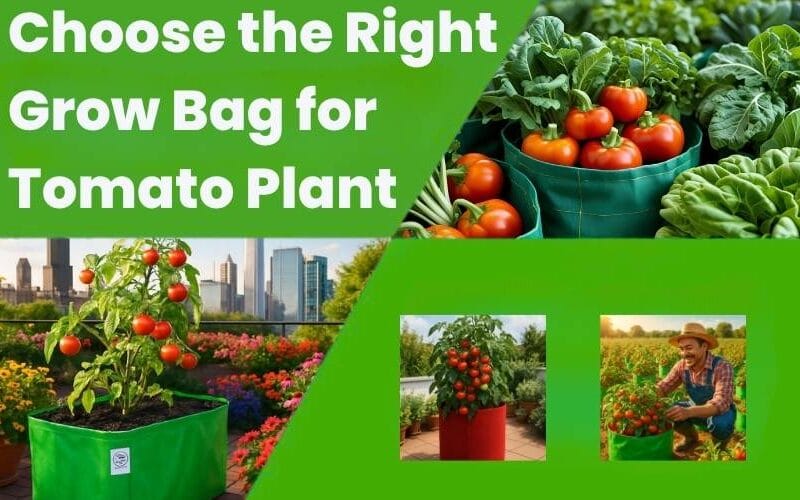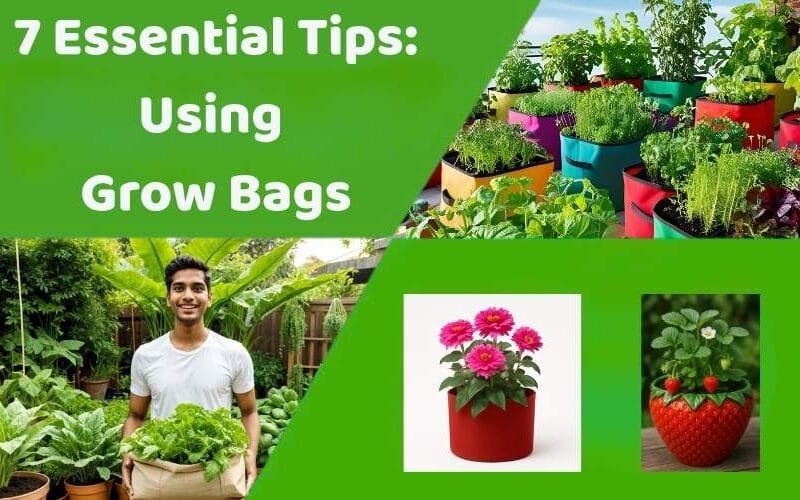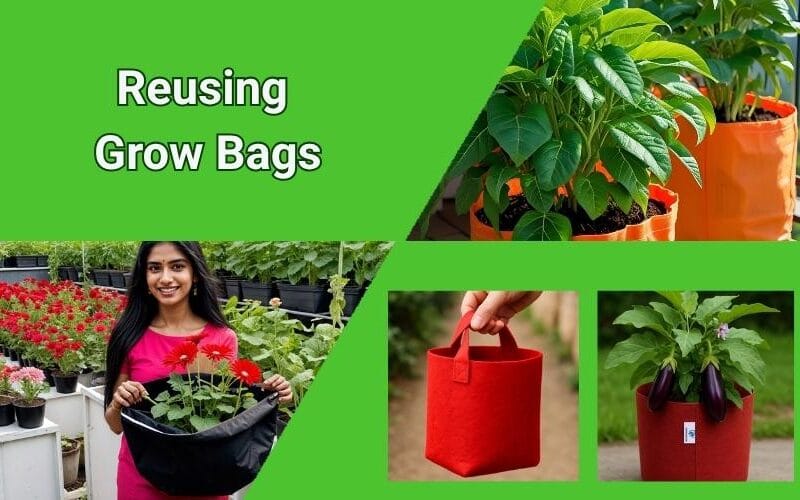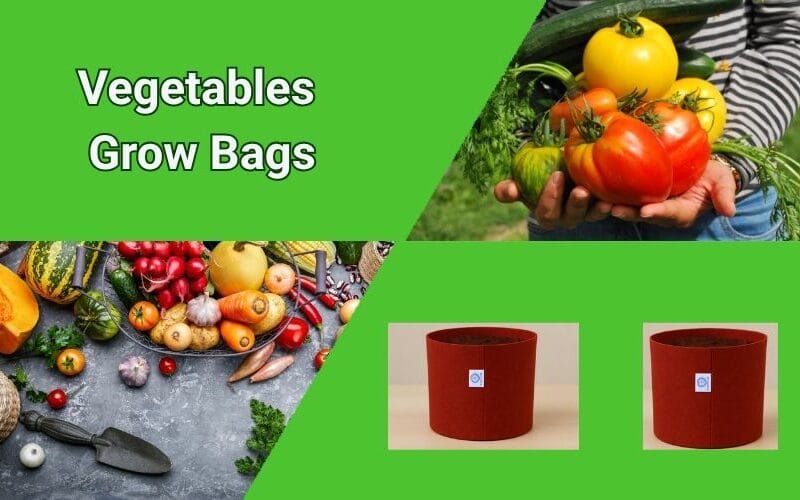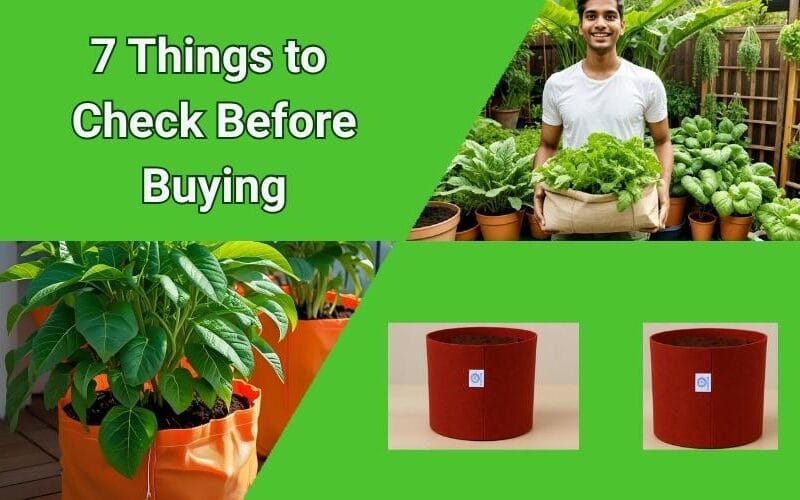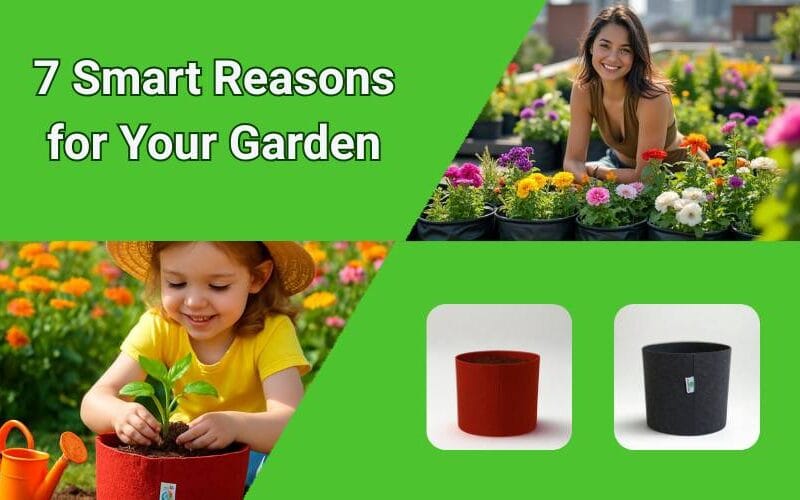Vegetable Growing Bags: Why They’re a Smart Gardening Choice You Should Make!
Thinking about starting a garden or upgrading your current one? Whether you have acres of land or just a tiny balcony, how you choose to plant your vegetables makes a big difference. For many modern gardeners, especially those in urban areas, Vegetable Growing Bags have become the go-to solution.
But why are Vegetable Growing Bags considered such a smart gardening choice? What makes them stand out from traditional pots or in-ground planting?
If you’re looking for an efficient, effective, and intelligent way to grow your own food, understanding the benefits of Vegetable Growing Bags is key. They offer a range of advantages that make gardening easier, healthier for your plants, and ultimately, more rewarding.
Let’s explore the top 7 reasons why Vegetable Growing Bags are a smart choice for your garden.
7 Smart Reasons to Choose Vegetable Growing Bags for Your Garden:
Discover how using Vegetable Growing Bags can make your gardening experience significantly better and smarter:
1. They Offer Superior Drainage and Aeration
Unlike plastic or ceramic pots that can get waterlogged, Vegetable Growing Bags (especially fabric ones) allow excess water to drain freely from all sides and the bottom. The porous material also means excellent air circulation to the roots. This prevents root rot, a common killer of container plants, making Vegetable Growing Bags a much healthier environment for your plants. This smart design avoids common gardening pitfalls.
2. They Prevent Root Circling (Air Pruning)
In hard-sided containers, roots hit the wall and start growing in circles, eventually strangling the plant. Vegetable Growing Bags made from fabric material prevent this. When roots reach the fabric, the air at the bag’s exterior causes the root tip to stop growing – this is called “air pruning”. This encourages the plant to send out new, healthy roots from the center, resulting in a stronger root system and a more vigorous plant. A truly smart feature for root health!
3. They Help Regulate Soil Temperature
Soil in traditional containers can get too hot in direct sun or too cold in chilly weather, stressing the roots. The breathable fabric of Vegetable Growing Bags helps to moderate soil temperature. It allows heat to escape in hot weather and provides some insulation in cooler conditions, creating a more stable and favorable environment for root development throughout the season.
4. They Save Space and Are Highly Versatile
For urban gardeners, space is premium. Vegetable Growing Bags are incredibly space-efficient. They can be placed close together, used in vertical gardening setups, or squeezed into tight spots on balconies and patios where traditional beds aren’t possible. Their flexibility means you can adapt your garden to whatever space you have available – a genuinely smart solution for small areas.
5. They Make Pest and Disease Management Easier
When plants are grown in separate Vegetable Growing Bags, if one plant gets a pest infestation or disease, it’s much easier to isolate it from your other plants. This reduces the risk of spread, saving your entire garden. Also, you start with fresh, disease-free potting mix in each bag, giving your plants a clean start. This proactive approach to plant health is incredibly smart.
6. They Are Lightweight and Portable
Unlike heavy ceramic or concrete pots, Vegetable Growing Bags are lightweight even when filled with soil. This makes them easy to move around. You can shift plants to get more sun, protect them from bad weather, or simply rearrange your garden layout effortlessly. This portability is a huge advantage in urban settings and makes Vegetable Growing Bags a practical choice.
7. They Are Durable and Often Eco-Friendly
Good quality Vegetable Growing Bags are surprisingly durable and can last for many seasons (3-5 years is common). Many are made from recycled materials, making them a more sustainable choice compared to single-use plastic pots. Their longevity and potential for recycling contribute to a greener gardening practice. Choosing durable Vegetable Growing Bags is a smart long-term investment.
👇 Explore more gardening tips in this post
Conclusion:
When you look at the advantages – superior root health, temperature control, space-saving design, ease of management, and durability – it’s clear why Vegetable Growing Bags are a smart choice for any gardener, especially those working with limited urban space.
Making the switch to Vegetable Growing Bags can simplify your gardening, lead to healthier plants, and ultimately provide you with a more abundant and satisfying harvest.
Ready to garden smarter? Give Vegetable Growing Bags a try!
Grow Bag Size Chart
| Size (L x W x H) | Suitable Plants | Buy Now | |
|---|---|---|---|
| 6x6 inch Geo Fabric | तुलसी, धनिया, पुदीना, अजवाइन, हरा प्याज, गेंदा | Buy Now | |
| 9x9 inch Geo Fabric | तुलसी, मिर्च, धनिया, गुलाब, पोदीना, टमाटर | Buy Now | |
| 8x8 inch Geo Fabric | तुलसी, मिर्च, पुदीना, धनिया, | Buy Now | |
| 24x24 inch Geo Fabric | अंजीर, अमरूद, स्ट्रॉबेरी, ड्रैगन फ्रूट, कीवी, पैशन फ्रूट | Buy Now | |
| 18x9 inch Geo Fabric | पालक, मेथी, धनिया, पुदीना, अजवाइन, हरा प्याज | Buy Now | |
| 18x18 inch Geo Fabric | Strawberry, Lemon, Dwarf Mango, Tomato, Cucumber | Buy Now | |
| 9x9 inch HDPE Green | तुलसी, मिर्च, धनिया, गुलाब, पोदीना, टमाटर | Buy Now | |
| 36x12x12 inch HDPE Green | टमाटर, भिंडी, बैंगन, लौकी, कद्दू, फूलगोभी | Buy Now | |
| 24x9 inch HDPE Green | पालक, मेथी, धनिया, पुदीना, , सिलंट्रो | Buy Now | |
| 24x9 inch Grey | पालक, मेथी, धनिया, पुदीना, हरा प्याज, सिलंट्रो | Buy Now | |
| 24x6 inch HDPE Green | पालक, मेथी, धनिया, पुदीना, हरा प्याज, सिलंट्रो | Buy Now | |
| 24x12x12 inch HDPE Green | टमाटर, मिर्च, बैंगन, भिंडी, हरा धनिया, पालक | Buy Now | |
| 24x12 inch HDPE Green | स्ट्रॉबेरी, अंजीर, नींबू, ब्लूबेरी, लेमन ग्रास, टमाटर | Buy Now | |
| 18x18 inch HDPE Green | Strawberry, Lemon, Dwarf Mango, Tomato, Cucumber | Buy Now | |
| 18x12x9 inch HDPE Green | टमाटर, मिर्च, बैंगन, भिंडी, हरा धनिया, पालक | Buy Now | |
| 18x12x12 inch HDPE Green | टमाटर, मिर्च, बैंगन, भिंडी, हरा धनिया, पालक | Buy Now | |
| 16x10x8 inch HDPE Green | टमाटर, मिर्च, बैंगन, भिंडी, हरा धनिया, पालक | Buy Now | |
| 15x6 inch HDPE Green | Strawberry, Green Chili, Mint, Tulsi, Baby Spinach | Buy Now | |
| 15x6 inch Black | Strawberry, Green Chili, Mint, Tulsi, Baby Spinach | Buy Now | |
| 15x18 inch HDPE Green | Strawberry, Lemon, Mint, Green Chili, Spinach, Coriander | Buy Now | |
| 15x15 inch Red | Strawberry, Lemon, Mint, Green Chili, Spinach, Coriander | Buy Now | |
| 15x15 inch HDPE Green | Strawberry, Lemon, Mint, Green Chili, Spinach, Coriander | Buy Now | |
| 15x15 inch Black | Strawberry, Lemon, Mint, Green Chili, Spinach, Coriander | Buy Now | |
| 12x6 inch HDPE Green | Mint, Tulsi, Coriander, Green Chili, Baby Spinach | Buy Now | |
| 12x18 inch HDPE Green | Buy Now | ||
| 12x16 inch HDPE Green | Strawberry, Lemon, Green Chili, Mint, Spinach, Coriander | Buy Now | |
| 12x12 inch Red | Strawberry, Green Chili, Mint, Coriander, Baby Spinach | Buy Now | |
| 12x12 inch HDPE Green | Strawberry, Green Chili, Mint, Coriander, Baby Spinach | Buy Now | |
| 12x12 inch Grey | Strawberry, Green Chili, Mint, Coriander, Baby Spinach | Buy Now | |
| 12x12 inch Black | Strawberry, Green Chili, Mint, Coriander, Baby Spinach | Buy Now | |
| 12x10 inch HDPE Green | Strawberry, Green Chili, Mint, Coriander, Baby Spinach | Buy Now | |
| 10x6 inch HDPE Green | Mint, Tulsi, Coriander, Green Chili | Buy Now | |
| 10x10 inch Red | Mint, Tulsi, Coriander, Green Chili | Buy Now | |
| 10x10 inch HDPE Green | Mint, Tulsi, Coriander, Green Chili | Buy Now | |
| 10x10 inch Grey | Mint, Tulsi, Coriander, Green Chili | Buy Now | |
| 10x10 inch Black | Mint, Tulsi, Coriander, Green Chili | Buy Now |
Vegetable Growing Bags – Frequently Asked Questions (FAQs)
Q1: Why are Vegetable Growing Bags better than plastic pots?
A: Vegetable Growing Bags offer better drainage, aeration, prevent root circling, and regulate temperature more effectively than plastic pots.
Q2: What kind of soil should I use in Vegetable Growing Bags?
A: A high-quality, well-draining potting mix is best.
Q3: How long do Vegetable Growing Bags last?
A: Good quality fabric Vegetable Growing Bags can last 3 to 5 years or even longer with proper care.
Q4: Are Vegetable Growing Bags suitable for all types of vegetables?
A: Yes, they are suitable for almost all vegetables, provided you choose the appropriate size Vegetable Growing Bag for the plant’s needs.
Q5: Do I need special fertilizer for Vegetable Growing Bags?
A: Regular plant fertilizer is fine, but since nutrients can wash out, using a slow-release or regular liquid fertilizer is a smart practice.
Q6: How do I know if a Vegetable Growing Bag has good drainage?
A: Fabric bags naturally provide excellent drainage through the material. For plastic bags, check for sufficient and well-placed drainage holes at the bottom.



